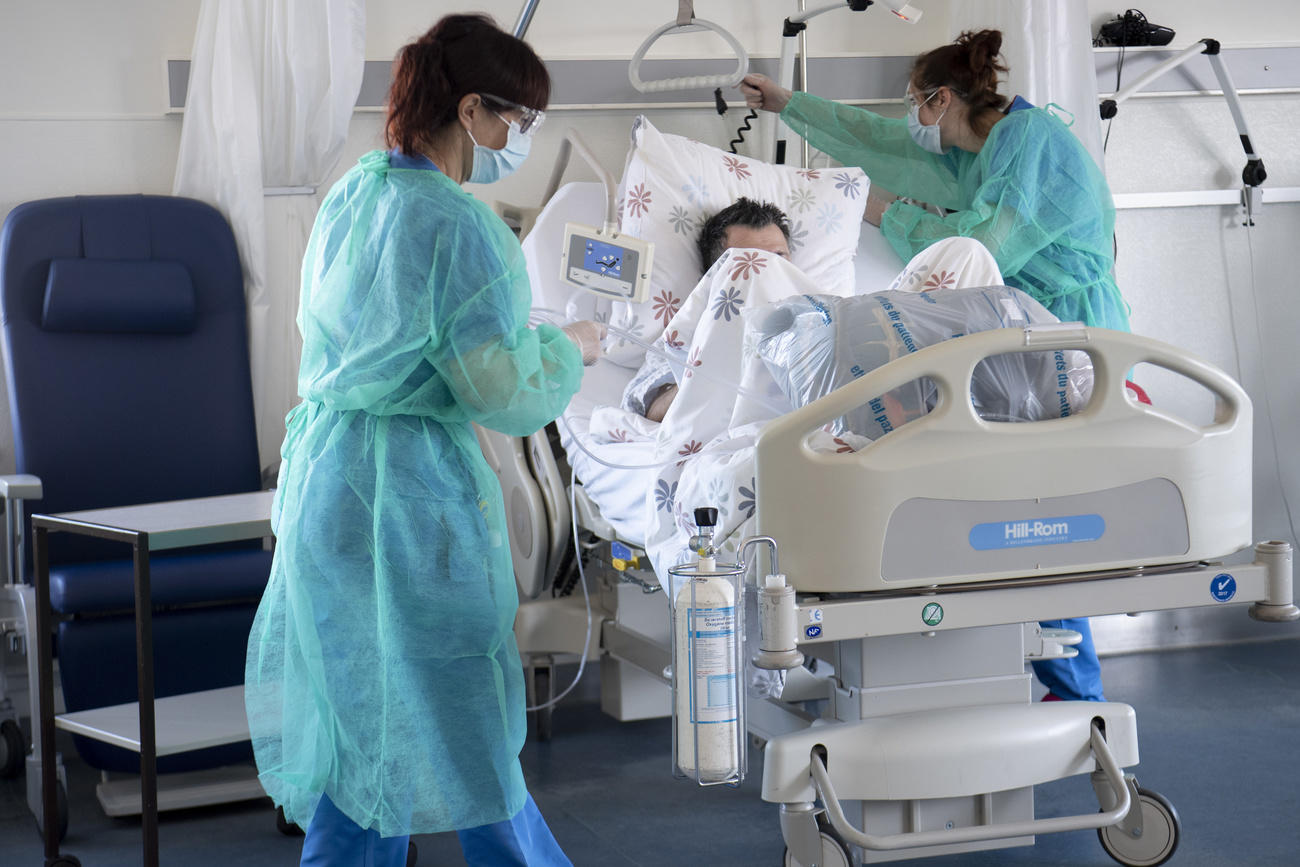
Men are more susceptible to coronavirus than women

Almost six out of ten people (58%) in Switzerland who are or have been hospitalised for coronavirus are men, according to Federal Office of Public Health figures. When it comes to deaths, men are even more affected than women at 60%.
It is not clear why men are more affected, Swiss public radio, SRF, said in an articleExternal link on Tuesday.
“Figures from China had already shown a similar picture and it was assumed that it could be related to smoking,” it said. “In China over 50% of men smoke but only a small percentage of women do. However, no clear results have yet been shown – more smokers have been affected, but the figure is not statistically significant.”
Among Swiss smokers the difference between the sexes is only a few percentage points, including older people. Although slightly more men smoke than women, this is unlikely to explain the 60:40 ratio in diseases and deaths.
Other factors must therefore also play a role, SRF said. Experts suggest the immune systems of women and men behave differently owing to the sex hormones oestrogen and testosterone. “In women, the immune system often reacts stronger and faster.”
Other possible explanations are that women care more about hygiene than men. “However, it’s not clear whether this is also the case in times of coronavirus. But men go to the doctor less often than women and also later. It could be that men with Covid-19 tend to react too late and then become more seriously ill.”
Switzerland is one of the countries most affected by the pandemic, with almost 16,000 positive tests and more than 350 deaths as of March 31.

More
Coronavirus: the situation in Switzerland

In compliance with the JTI standards
More: SWI swissinfo.ch certified by the Journalism Trust Initiative




























You can find an overview of ongoing debates with our journalists here . Please join us!
If you want to start a conversation about a topic raised in this article or want to report factual errors, email us at english@swissinfo.ch.